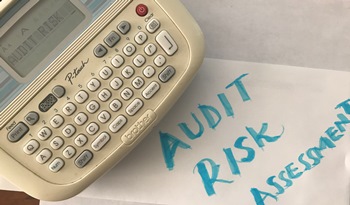IRS Audit Risk Assessment
An IRS audit can be triggered by statistical sampling, mismatched information, or issues involving other taxpayers. It may also arise from whistleblowers, court documents, or failure to pay payroll taxes.
How IRS generates Audits

If you own a business, are otherwise self-employed or if you conduct your business in cash, getting an IRS Audit Risk Assessment (“IARA”) may reduce or mitigate the likelihood of an IRS adjustment of your Federal Income Tax Liability. The IARA will also serve as a blueprint for the steps a business needs to take going forward in preparation for an audit. The IARA is intended to address the following issues:
- The likelihood of your Federal Income Tax returns being selected for examination by the IRS.
- Whether the examination will be expanded to include multiple tax years or limited in scope to one year.
- Whether you are likely to be subject to penalties in the event of an upward adjustment to your federal income tax liability.
- Whether “badges of fraud” are present.
The Process of preparing for IRS Audit Risk Assessment
No investigation is complete without a thorough public records search that includes, among other things, court records to determine whether you have made any affirmations under penalty of perjury related to the overall financial condition of your business and/or you, individually. Courts records, unless sealed by the court, are considered public records and readily accessible to the IRS. A public records search will also reveal the existence of any federal or state tax liens, judgments, mortgages, or other encumbrances as well as litigation to which you are a party. During an examination IRS will examine all public records to see if there are any inconsistencies between the income contained in the court records and your Federal Income Tax Returns.
The IARA also includes the review of any application for credit you may have recently submitted including any application for financing in connection with the purchase or refinance of any real estate property, purchase of an automobile or any large luxury items, as well as any application for credit. While these documents are not considered public records, the IRS can easily obtain them by subpoena. As part of our due diligence, it will also be necessary to obtain credit reports from the three major credit bureaus.
The most important phase of the IARA is the examination of the business. Here, we look at the structure of the business (i.e. single member LLC, C Corp. S. Corp), and in this regard, examine all organizational documents for the business. We also look at the type of business, industry and accounting methods used in the industry.
The gross profit percentage for your business reported for income tax purposes is compared to the industry standards. In addition, an examination of net income/loss, interest expense and related party transactions is undertaken. The IRS is aware that it is not uncommon for a closely held business to pay for personal expenses on behalf of its owners and deducting those expenses on the business return, nor is it uncommon for the business to purchase large ticket items for personal use by its business owners and thereafter expensing or capitalizing those expenditures. In this regard, it is necessary to evaluate the impact of any large purchases by the business, such as an automobile, boat, RV, vacation home, etc. as wells personal expenses paid by the business on behalf of its owner that are claimed as business expenses.
Loans to and from shareholders, partners, etc. in a business is an area targeted by the IRS and often results in the IRS reclassification of a loan to a dividend and the disallowance of the expenditures as a business expense. The IARA includes an evaluation of all shareholder loans to and from the business to determine whether such loans: (1) are memorialized in writing; (2) reflect a market interest rate; and (3) are actually being paid and reported on your Federal Income Tax Returns.
If you are a business owner or otherwise self-employed, you are much more likely to be audited by the IRS. Having an IRS Audit Risk Assessment prepared by our office can mean the difference between successfully surviving an IRS examination and economic devastation. Contact us for further details.
Hear from relieved
Taxpayers who trusted Verni Tax Law
Anthony was creative in helping me resolve some past issues in a way that they never became a problem so that is greatly appreciated and I feel confident I can now enjoy my retirement with peace of mind. Thanks for that.

Ken B.
Anthony was creative in helping me resolve some past issues in a way that they never became a problem so that is greatly appreciated and I feel confident I can now enjoy my retirement with peace of mind. Thanks for that.

Douglas R.
Anthony was creative in helping me resolve some past issues in a way that they never became a problem so that is greatly appreciated and I feel confident I can now enjoy my retirement with peace of mind. Thanks for that.

Phil Y
Anthony was creative in helping me resolve some past issues in a way that they never became a problem so that is greatly appreciated and I feel confident I can now enjoy my retirement with peace of mind. Thanks for that.

Yassin and Eva, B.
Have questions or need guidance?
I’m always available by phone, email, or Skype whatever’s easiest for you.
Take the first step and let me help fix the root of your tax problems.